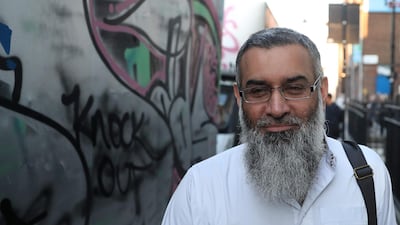From platforming to gaslighting, the lexicon of offences deemed unfit for public consumption is rapidly expanding. New labels or unfamiliar tags have been attached to whole generations, such as snowflakes, boomers and zoomers, to name but three.
There is no aspect of life that is deemed too trivial for the focus of a dispute. Last week, it was the Mr Men series of comics for children. A PhD student reported that in one book, Mr Clever had been disparaging towards his fellow character Little Miss Curious. Gaslighting.
There is a torrent of headline-making controversies fuelling support for bans and witch-hunts. But the trend is not as clearcut as the media coverage would suggest. When attitudes are rigorously analysed, what is exposed is that priorities have become dangerously skewed.
At one level, freedom of speech has been hijacked by the fashionable theory that words hurt. The flipside is that this has detracted from the vital struggle against hateful ideologies and the people who use these to radicalise recruits.
Two recent studies in the US and UK among high-school and university students found strong figures endorsing the overall principle of free speech. The results were nuanced but can be interpreted as demonstrating the resilience of basic principles.
More than 80 per cent of students said that freedom of expression was more important than ever while just over half said it was under threat, according to the data published by the policy unit of King’s College London. Only a quarter of the 2,000 students surveyed said they were unable to express their opinions and 63 per cent said free speech and robust debate were well protected at their university.
Separately, a long-running Knight Foundation survey of students from the biggest schools in the US found a rise in support for the First Amendment of that country's constitution – which guarantees freedom of expression – over a 15-year period between 2004 and 2018. A report by the foundation said that this was important because attitudes generally prove durable over time. Strong support among the young for free speech is a positive signal for the future.
Many academic institutions follow what are known as the "Chicago principles" of freedom of expression. These affirm the right of speakers to be offensive, unwise, immoral, or wrong-headed. As such, they are a bulwark against the no-platforming movement.
This has not prevented a search for a longer-term resolution of the tension between the opposing advocates. One step beyond what happens now is the concept of ring-fencing freedom of expression at public venues. The Knight Foundation report suggested the creation of "brave spaces" to allow for strong arguments. These would act as the antithesis of the "safe spaces", so favoured by some student campaigners and their sympathisers.
This suggestion shows how broad constitutional principles are undercut and undermined by increment. It also demonstrates how much effort goes into sweating over minor changes in procedure. The problem, meanwhile, is that these fierce culture wars over language have done damage beyond the immediate feuds.
In the wake of the recent terror attack on London Bridge, it has become clear how much ground has been lost from tackling extremism.
Despite years of promises from internet platforms, there is no framework to remove dangerous content. Still available on YouTube are more than 100 propaganda videos from Anwar Al Awlaki, Al Qaeda's recruiting sergeant, eight years after he was killed on the Yemeni battlefield.
Extremism is not called out or excluded in the way that intellectuals are put in the crosshairs. Even when proponents are not making the direct arguments and calls to violence, they are able to use the public domain to advance their agenda and undermine ideas they see as a threat. To weaponise terror incidents, such as the one that occurred on London Bridge, all that is necessary is access to the public to put an alternative worldview. The spotlight is not focused on what lies behind their language.
Despite the attack, known hardliners have been able to access the television screens to put their own spin on the attack. Moazzam Begg, the founder of the controversial CAGE advocacy group that campaigns against Britain's anti-extremism policy, was on Good Morning Britain, the mainstream breakfast television show, following the attack that killed two. There, Mr Begg was not so much put on the spot about the atrocity as allowed to make arguments against the official counter-extremist Prevent programme. The former Guantanamo inmate argued that Prevent's programme was radicalising young Muslims.
Meanwhile, Anjem Choudary was back in the news when an old picture emerged of him posing with Usman Khan, the London Bridge killer. The British hate preacher, who was released from jail last year after being sentenced in 2016 for leading an extremist network linked to violent jihadists, had over the years used the freedoms of expression and association to radicalise a generation of men.
As the art of outrage took off during the past decade, the battle focused on principles of free speech. The problem with this was self-absorbed labelling and no-platforming arguments effectively gave a free pass to the forces of radicalisation to stay in the public domain.
Priorities cannot change soon enough.
Damien McElroy is the London bureau chief for The National


